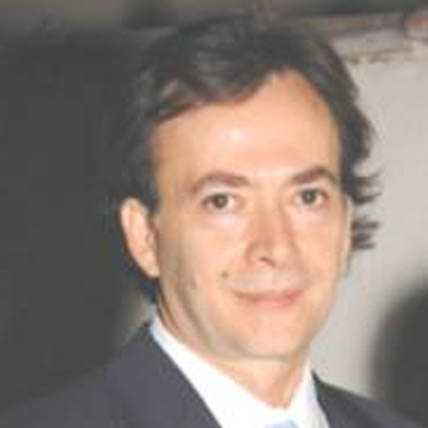Track on Social Network and Media Analysis and Mining (SNMAM)
Call for Papers
Online social networks are web platforms that provide a variety of services. In such platforms users may share locations and community activities, post and tag photos and other media contents, as well as contact individuals with similar interests. The rapid growth of online social networks, as well as the increase in consumption and production of social media, have made the analysis of social networks one of the most relevant topics of current academic research and industry applications.
SIMBig has becoming an important venue that has attracted computer scientists, computer engineers, software engineers, and application developers who work on networks and web based-methods. Within the general symposium, the Social Network and Media Analysis and Mining (SNMAM) track will provide a forum that brings both researchers and practitioners to discuss research trends and techniques related to social networks and media. Therefore, SNMAM welcomes experimental and theoretical works on social network and media analysis and mining along with their application to real world problems.
Full papers will be reviewed and assessed by the Program Committee. Accepted papers will be part of the proceedings of SIMBig 2019, which will be published with Springer CCIS Series.
Scope and Topics
We plan to include all the important topics related to social network and media analysis and mining within SNMAM. The topics suitable for SNMAM include, but not limited to:
- Data modeling for social networks and social media
- Dynamics and evolution of social networks
- Topological, geographical and temporal analysis of social networks
- Privacy and security in social networks
- Pattern analysis in social networks
- Crowd sourcing of network data generation and collection
- Community structure analysis in social networks
- Link prediction and recommendation systems
- Propagation and diffusion of information in social networks
- Detection of spam, misinformation and malicious activities in social networks
- Location-based social networks
- Mobile computing and applications on social networks
- Modeling of user behavior and interaction in social networks
- Information retrieval in social network and media services
- Business and political impact in social network and media analysis
- Monitoring social networks and media
- Analysis of the relationship between social media and traditional media
- Exploratory and visual data mining of social networks and media data
- Ethics and privacy in social network and media services
- Big data issues in social network and media analysis
- New applications and services arising from big data, social networks and social media.
Paper Submission Guidelines
Papers are limited to a total of 14 (fourteen) pages, including all content and references. All submissions must be in English.
Submissions must be in PDF, formatted with the Springer Publications format. For details on the Springer style, see here.
Easychair Submissions Website
Submit your paper to "SIMBig 2019 - SNMAM" at: https://easychair.org/conferences/?conf=simbig2019.
Remember, select SNMAM option in the list of Topics before submit your paper.
Organizers

Jorge Valverde-Rebaza
PhD in Computer Science
Department of Scientific Research
Visibilia, Brazil

Alneu de Andrade Lopes
PhD in Computer Science
Department of Computer Science, ICMC
University of São Paulo, Brazil
Program Committee
- Alan Valejo, University of São Paulo, Brazil;
- Alexandre Donizeti, Federal University of ABC, Brazil;
- Aurea Soriano Vargas, State University of Campinas, Brazil;
- Brett Drury, Scicrop, Brazil;
- Conceição Rocha, INESC TEC, Portugal;
- Diego Furtado Silva, Universidade Federal de São Carlos, Brazil;
- Huei Diana Lee, Western Paraná State University, Brazil;
- Hugo D. Calderon Vilca, National University of San Marcos, Peru;
- Leissi Castañeda León, University of São Paulo, Brazil;
- Luca Rossi, Southern University of Science and Technology, China;
- Mathieu Roche, CIRAD, TETIS and University of Montpellier, France;
- Newton Spolaôr, Western Paraná State University, Brazil;
- Nils Murrugarra, University of Pittsburgh, USA;
- Oscar Cuadros, University of São Paulo, Brazil;
- Pablo Fonseca, University of Montreal, Canada;
- Paola LLerena Valdivia, INRIA Saclay, France;
- Pascal Poncelet, University of Montpellier, France;
- Pedro Shiguihara Juárez, Universidad Peruana de Ciencias Aplicadas, Peru;
- Rafael Giusti, Federal University of Amazonas, Brazil;
- Rafael Rossi, Federal University of Mato Grosso do Sul, Brazil;
- Rafael Santos, National Institute for Space Research (INPE), Brazil;
- Ricardo Campos, Polytechnic Institute of Tomar and LIAAD/INESC TEC, Portugal;
- Ricardo Marcacini, Federal University of Mato Grosso do Sul, Brazil;
- Sabrine Mallek, Université de Lorraine, France;
- Shima Kashef, Shahid Bahonar University of Kerman, Iran;
- Thiago de Paulo Faleiros, University of Brasilia, Brazil;
- Thiago Henrique Silva, Federal University of Technology - Paraná, Brazil;
- Victor Stroele, Federal University of Juiz de Fora, Brazil;
- Willy Ugarte, Universidad Peruana de Ciencias Aplicadas, Peru.


